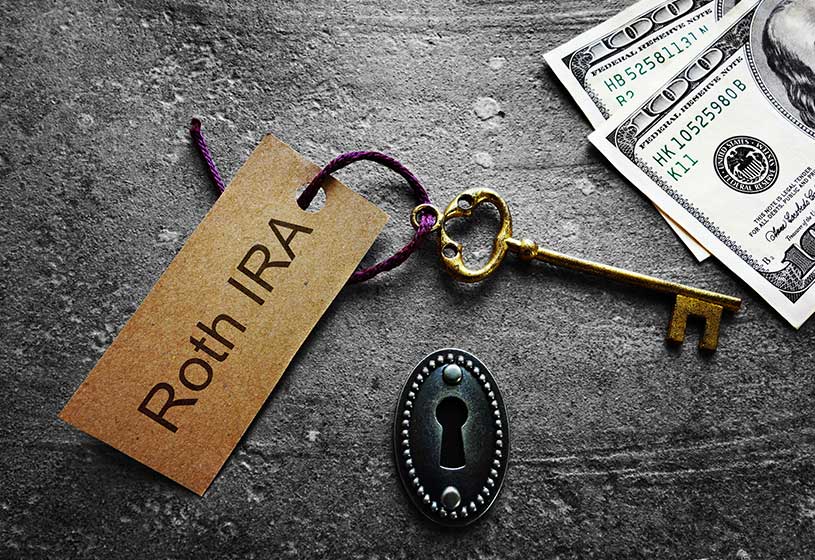In the realm of retirement planning, one term has been gaining popularity among savvy investors: the self-directed Roth IRA. This unique retirement account offers more control and investment flexibility compared to traditional IRAs. But what exactly is it, and how does it differ from other retirement accounts?
Understanding Self-Directed Roth IRAs
A self-directed Roth IRA is an individual retirement account variant, empowering investors to diversify their portfolios with a broader array of assets, extending beyond conventional options like stocks, bonds, and mutual funds. Characterized by its “Roth” nature, this self-directed IRA type involves making contributions using after-tax dollars, while ensuring that qualified withdrawals during retirement incur no tax obligations.
This IRA is particularly appealing to those who want to diversify their retirement savings and are comfortable making their investment decisions. Unlike traditional IRAs, where investment choices might be limited to what is offered by the account custodian, a self-directed Roth IRA opens the door to a broader range of investment opportunities.
Benefits of a Self-Directed Roth IRA
The main attraction of this individual retirement account lies in its flexibility. Investors can include a variety of assets in their portfolios, such as real estate, precious metals, private placements, and even certain types of cryptocurrencies. This diversification can potentially offer greater returns and a hedge against market volatility.
Another key benefit is the tax advantage. Since taxes are paid upfront on contributions, all earnings and withdrawals during retirement are tax-free, provided certain conditions are met. This feature can be particularly advantageous for those who expect to be in a higher tax bracket during retirement.
How Does It Work?
To set up this type of retirement account, select a custodian that offers self-directed accounts. This custodian will hold your IRA assets and ensure that your account complies with IRS rules and regulations. After setting up your account, you can start directing your investments.
Investment Options
The investment options for retirement accounts are vast. Real estate is a popular choice, allowing investors to put money into rental properties, land, and even commercial real estate. Precious metals like gold and silver offer a stable investment, especially during economic uncertainty.
Private placements, including investing in private companies or startups, are another avenue. This can offer significant returns but comes with higher risk. It is essential to thoroughly research and understand each investment before committing your retirement funds.
Rules and Regulations
While this individual retirement account offers more freedom, it also comes with its set of rules. The IRS prohibits certain transactions and investments, like investing in collectibles or life insurance. Additionally, there are rules against self-dealing – using your IRA to benefit yourself or family members immediately.
Contribution Limits and Withdrawals
The contribution limits for a self-directed Roth IRA are the same as a regular Roth IRA. For 2023, the limit is $6,000, or $7,000 if you are age 50 or older. Withdrawals of contributions can be made at your convenience and do not attract tax and penalties. However, to withdraw earnings without penalties, the account must be past the age of five, and the account holder must be past the age of 59.5 years or meet other conditions.
Risks and Considerations
Investing through a self-directed Roth IRA does carry risks, especially with non-traditional investments. The responsibility to assess and manage these risks falls on the investor. Additionally, the complexity of these investments often requires more due diligence and understanding of tax laws and regulations.
Estate Planning and the Self-Directed Roth IRA
In addition to investment flexibility and tax benefits, a self-directed Roth IRA can be a powerful tool in estate planning. Since Roth IRA distributions are tax-free for beneficiaries, it can be an efficient way to pass wealth to heirs. Properly integrated into an estate plan, this individual retirement account can ensure a smoother transfer of assets while minimizing the tax impact on your beneficiaries.
Choosing a Custodian for Your Self-Directed Roth IRA?
A self-directed Roth IRA offers an exciting avenue for proactive investors to take control of their retirement savings. However, it requires a good deal of knowledge, research, and a reliable custodian, like Nevada Trust Company, to navigate its complexities successfully.
As a renowned provider of custody and escrow services, we specialize in managing a wide range of assets and ensuring compliance with all regulatory requirements. Our expertise in handling unique investment types, including Nevada Asset Protection Trust and self-directed IRA, makes us an ideal partner for those looking to expand their retirement portfolio beyond traditional assets.
This type of trust offers additional layers of security for your assets, ensuring a more robust financial plan for your future. For those interested in further expanding their asset protection and estate planning strategies, contact us now!






